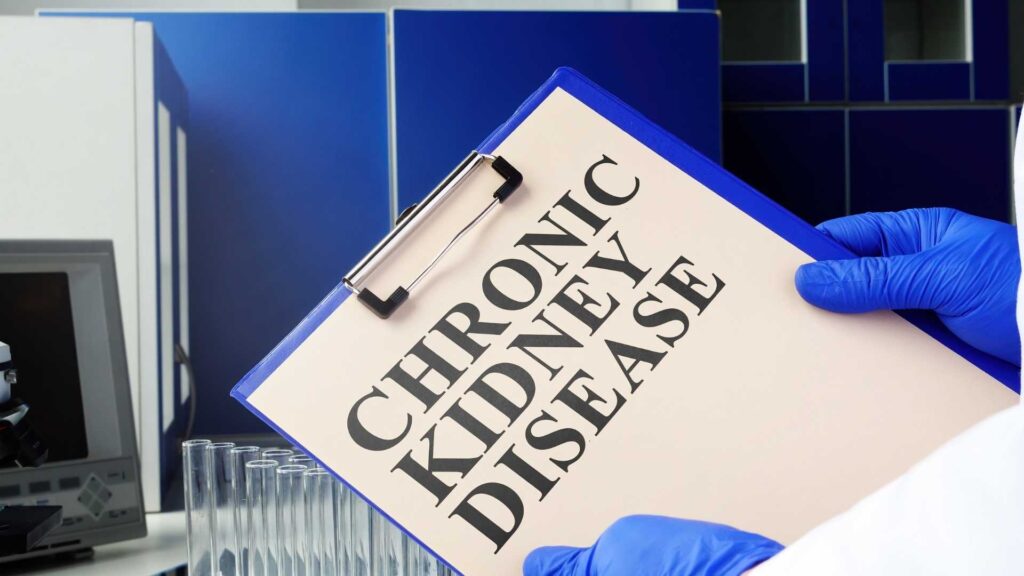Chronic Kidney Disease is a chronic disease that affects the kidney’s function. This disease is the leading cause of death among those under 45 years of age in the United States. According to the National Kidney Foundation, CKD is a group of disorders where the kidneys are damaged and can no longer remove blood waste. As a result, the body can accumulate many waste products in the blood.
Symptoms of Chronic Kidney Disease
-
- Include
- fatigue
- weakness
- dizziness
- confusion
- weight loss
- dark-colored urine
Common causes And Diagnose of Chronic Kidney Disease
- Diabetes
- High blood pressure
- Atherosclerosis.
How Can You Protect Your Kidneys?
While there are no specific ways to protect your kidneys, you can take preventive measures. If you have diabetes, you should limit the amount of processed food you eat. If you have high blood pressure or diabetes, you should make sure to consult with kidney transplant physician in kolkata about the right amount of fruits and vegetables. A healthy diet will help you control your blood pressure and weight. A well-balanced diet can also help you protect your kidneys from other diseases. One of the most important ways to protect your kidneys is to make sure you drink plenty of water. Usually, urine should be straw-colored, and if you notice a dark color, you may be dehydrated. If you exercise vigorously, you should drink more water. Your diet should also include a variety of vitamins and mineralsAvoid Processed Foods:
In addition to drinking water, you should avoid eating too many processed foods. They will cause your kidneys to fail in their function. Therefore, it is important to keep a healthy diet. If you eat too much fat, your body will produce too much waste and not function properly. A diet rich in fiber will help your kidneys function properly. You should follow a balanced diet with plenty of fiber and fruits and vegetables. If you eat too much sugar, your body will produce excess acid and waste, negatively affecting your kidneys. A healthy diet is crucial for the health of your kidneys. Eating a diet rich in fiber and fruits and vegetables will support your kidneys and help them function. It will prevent many of the conditions that can damage your kidneys. In addition to avoiding processed foods, a healthy diet will also reduce your risk of diabetes and hypertension. It will keep your body healthy and reduce the chances of future complications. By eating more fiber, you will prevent infections and improve your overall health.Avoid Food with High Levels of Salt and Suger:
It is important to avoid eating foods that contain high levels of salt and sugar. In addition to eating more fiber and fruit, you should also limit processed foods. These foods are high in sodium and will cause your kidneys to malfunction. Your health depends on how much you eat. By eating a healthy diet, you will prevent kidney failure. You will control your blood sugar levels and maintain good health.Causes of End-Stage Kidney Disease
The most common causes of kidney disease that are end-stage are:Diabetes
Diabetes is the most frequent reason for kidney failure in all regions globally. Over a long period, it gradually causes damage to the kidneys’ filters. The chronic kidney condition (called diabetic kidney disease) gradually progresses, eventually leading to kidney failure at the end of the road.Hypertension:
Hypertension -The increased blood pressure of the small kidney blood vessels results in irreparable damage to the kidneys, leading to kidney diseases.Glomerulonephritis:
The inflammation of the blood vessels and other kidneys can cause slow and scarring damage. It can occur in people suffering from autoimmune diseases like lupus and ANCA vasculitis, where the immune system perceives the kidney as a foreign object and begins attacking it.Interstitial Nephritis:
It is similar to an allergic reaction to the kidney. Certain herbs or medicines may cause inflammation in the interstitial space leading to chronic kidney diseases.Renal Artery StenosisIt:
Renal Artery StenosisIt refers to blockages in the blood vessels that carry blood to the kidneys in time.Polycystic Kidney Disease:
Polycystic Kidney Disease is an inheritable condition where large cysts or hollow spaces form inside the kidney, making its normal function difficult.Congenital Issues:
The condition is present before birth and can be seen when kidneys lose more than 90 percent of their functional capacity.Conclusion About Chronic Kidney Disease
In short, you should try to avoid kidney disease. Many factors can contribute to kidney disease. Malnutrition, diabetes, and obesity are some common causes. If you experience any of these symptoms, it is important to visit your doctor immediately. Treatment is available to reduce the risk of kidney disease. The earlier you catch it, the better your chances of avoiding kidney disease.Chronic Kidney Disease is a chronic disease that affects the kidney’s function. Know All Symptom, Causes, Precautions, And Diagnose Of kidney Disease

